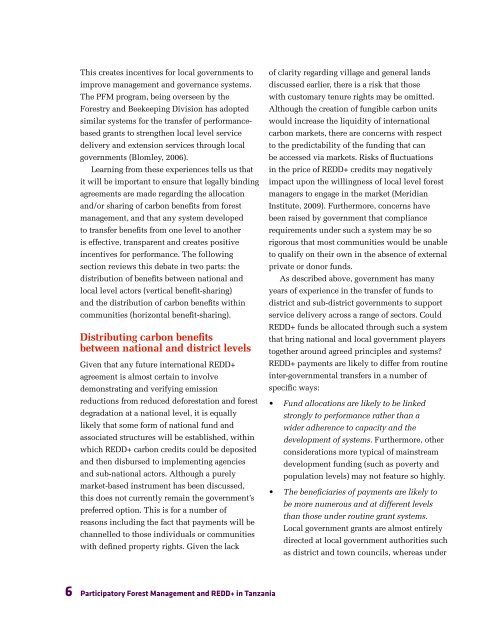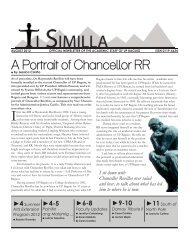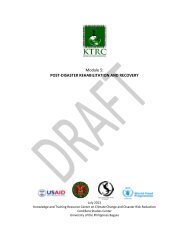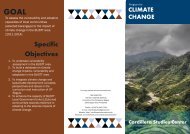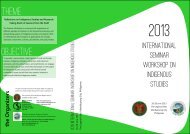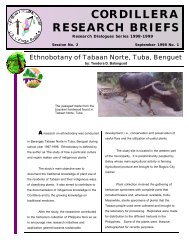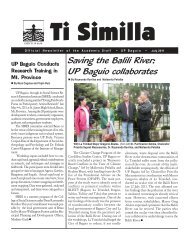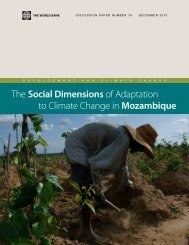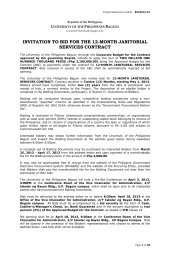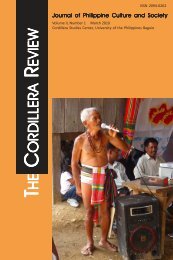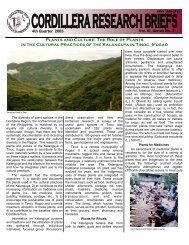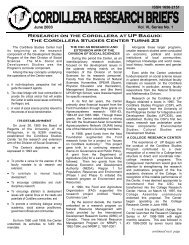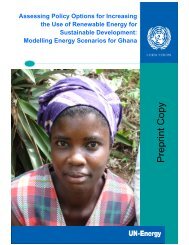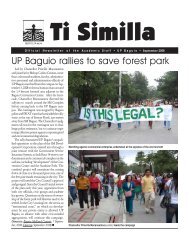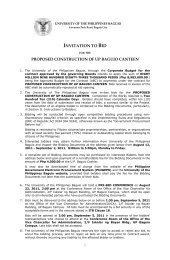Tanzania Report
Tanzania Report
Tanzania Report
Create successful ePaper yourself
Turn your PDF publications into a flip-book with our unique Google optimized e-Paper software.
This creates incentives for local governments to<br />
improve management and governance systems.<br />
The PFM program, being overseen by the<br />
Forestry and Beekeeping Division has adopted<br />
similar systems for the transfer of performancebased<br />
grants to strengthen local level service<br />
delivery and extension services through local<br />
governments (Blomley, 2006).<br />
Learning from these experiences tells us that<br />
it will be important to ensure that legally binding<br />
agreements are made regarding the allocation<br />
and/or sharing of carbon benefits from forest<br />
management, and that any system developed<br />
to transfer benefits from one level to another<br />
is effective, transparent and creates positive<br />
incentives for performance. The following<br />
section reviews this debate in two parts: the<br />
distribution of benefits between national and<br />
local level actors (vertical benefit-sharing)<br />
and the distribution of carbon benefits within<br />
communities (horizontal benefit-sharing).<br />
Distributing carbon benefits<br />
between national and district levels<br />
Given that any future international REDD+<br />
agreement is almost certain to involve<br />
demonstrating and verifying emission<br />
reductions from reduced deforestation and forest<br />
degradation at a national level, it is equally<br />
likely that some form of national fund and<br />
associated structures will be established, within<br />
which REDD+ carbon credits could be deposited<br />
and then disbursed to implementing agencies<br />
and sub-national actors. Although a purely<br />
market-based instrument has been discussed,<br />
this does not currently remain the government’s<br />
preferred option. This is for a number of<br />
reasons including the fact that payments will be<br />
channelled to those individuals or communities<br />
with defined property rights. Given the lack<br />
of clarity regarding village and general lands<br />
discussed earlier, there is a risk that those<br />
with customary tenure rights may be omitted.<br />
Although the creation of fungible carbon units<br />
would increase the liquidity of international<br />
carbon markets, there are concerns with respect<br />
to the predictability of the funding that can<br />
be accessed via markets. Risks of fluctuations<br />
in the price of REDD+ credits may negatively<br />
impact upon the willingness of local level forest<br />
managers to engage in the market (Meridian<br />
Institute, 2009). Furthermore, concerns have<br />
been raised by government that compliance<br />
requirements under such a system may be so<br />
rigorous that most communities would be unable<br />
to qualify on their own in the absence of external<br />
private or donor funds.<br />
As described above, government has many<br />
years of experience in the transfer of funds to<br />
district and sub-district governments to support<br />
service delivery across a range of sectors. Could<br />
REDD+ funds be allocated through such a system<br />
that bring national and local government players<br />
together around agreed principles and systems<br />
REDD+ payments are likely to differ from routine<br />
inter-governmental transfers in a number of<br />
specific ways:<br />
• Fundallocationsarelikelytobelinked<br />
stronglytoperformanceratherthana<br />
wideradherencetocapacityandthe<br />
developmentofsystems. Furthermore, other<br />
considerations more typical of mainstream<br />
development funding (such as poverty and<br />
population levels) may not feature so highly.<br />
• Thebeneiciariesofpaymentsarelikelyto<br />
bemorenumerousandatdifferentlevels<br />
thanthoseunderroutinegrantsystems.<br />
Local government grants are almost entirely<br />
directed at local government authorities such<br />
as district and town councils, whereas under<br />
6<br />
Participatory Forest Management and REDD+ in <strong>Tanzania</strong>


